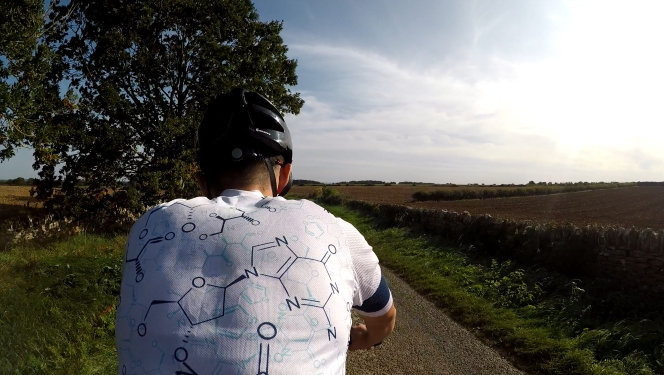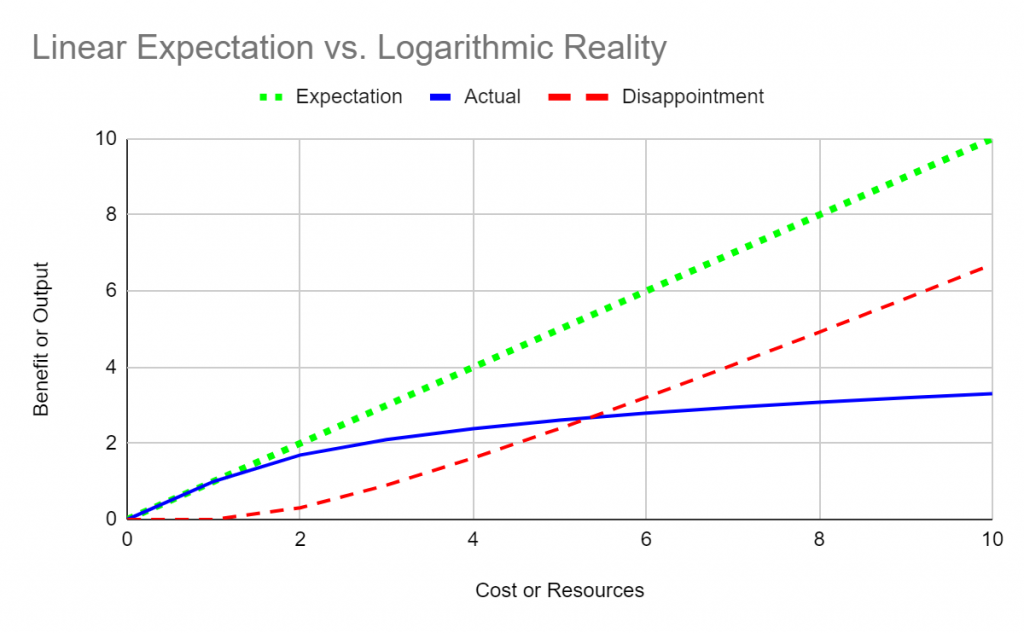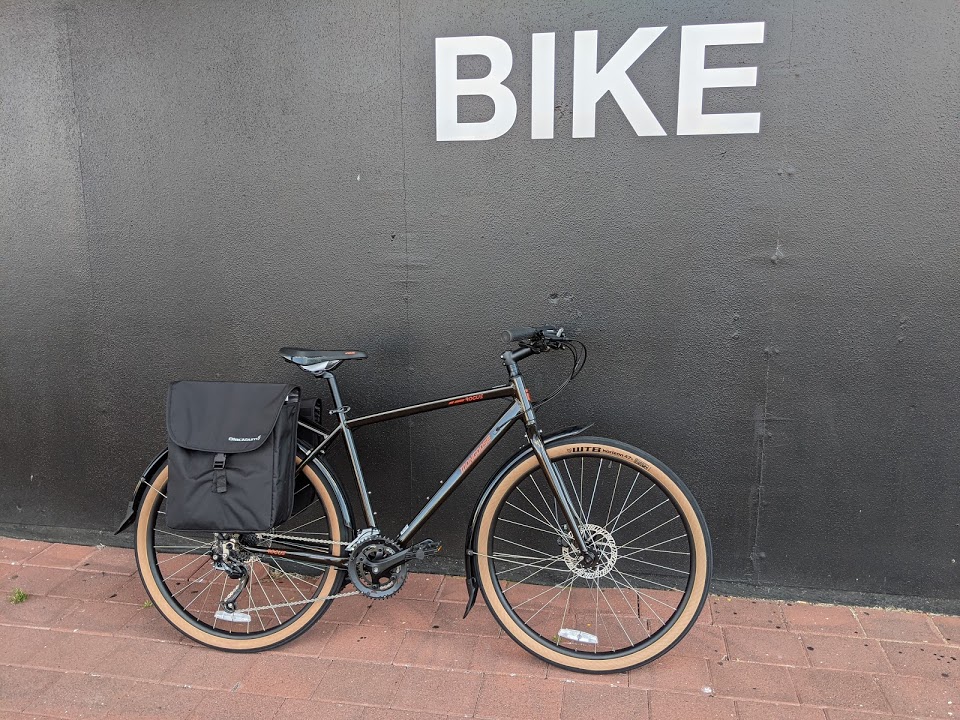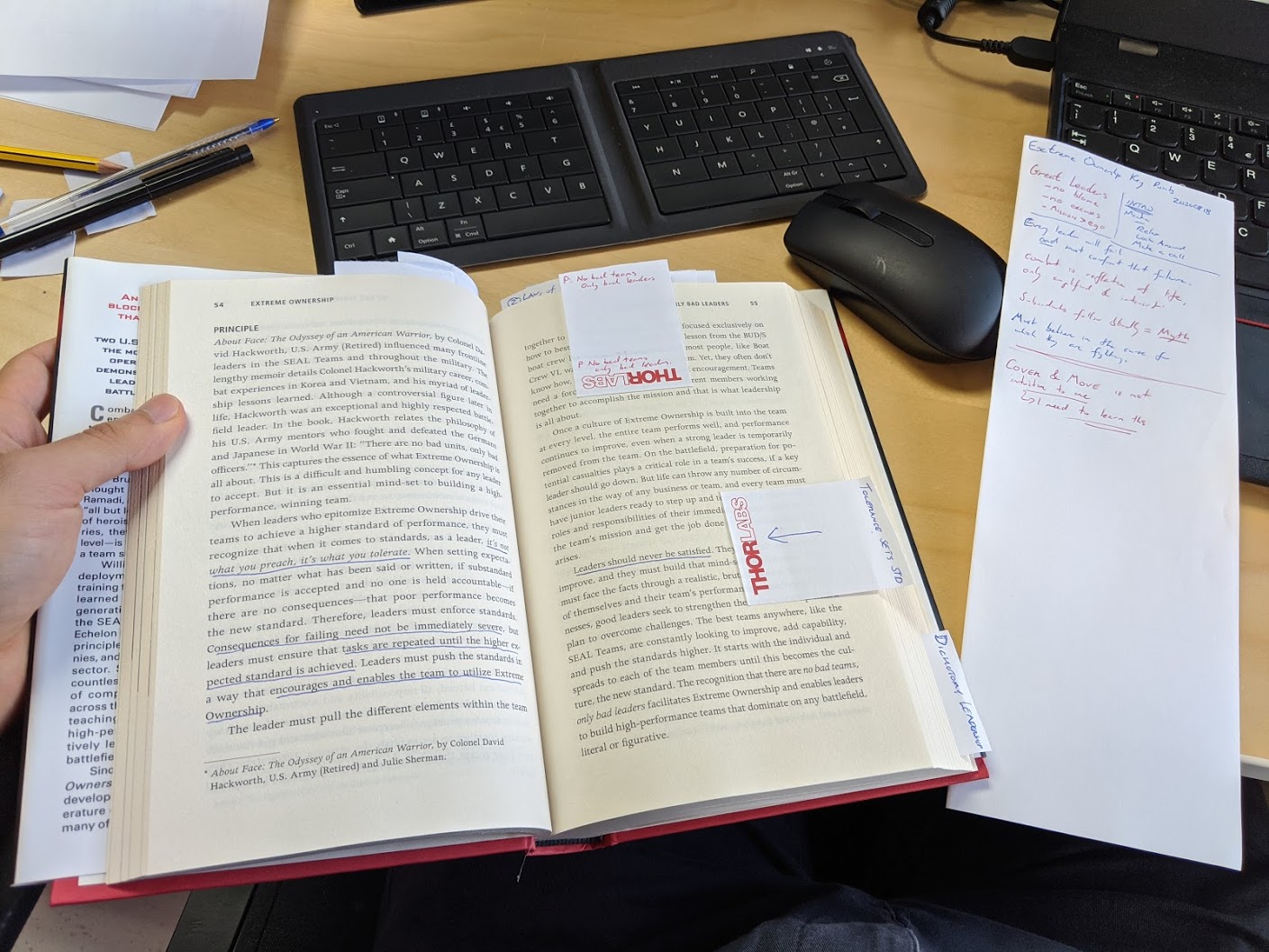Setting up a house in Auckland, friends and chance acquaintances alike were sceptical about the ease of living without a car. Auckland does have public transport, and while it is better than the locals might think, the reality is that infrastructure is built around the assumption of car ownership. Parking is free and plentiful, commercial and industrial parks are organised for the ease of large vehicles. The world needs to move away from the damage of fossil fuel consumption, as well as making transport healthier and more efficient. To help stimulate change, early adopters are needed to sacrifice convivence in order to blaze trails. It is time and energy consuming, but also rather satisfying.
2020 Week 53: Reflections
Weeks in a Year
A quick note on week numbers: Typically when asked how many weeks are in a year, 52 is a good answer. Keeping time is a little more complicated, and this week we are still in the 53rd year of 2020. Interestingly, this can cause issues in systems like GPS if the unusual 53 week year is not accounted for.
Reflections
It has been an unusual year, one filled with new challenges and opportunities to learn and grow. I enjoyed a friend’s suggestion to use Year Compass to direct some personal reflection. A few things to share:
Building things other people use is very satisfying.
2020 was the most productive year I have had in terms of programming, oddly brought about by moving into a People Team role. Compared with cutting edge research, the smaller challenges of automating office applications provided an opportunity for me to see a project from start to finish, and learn a lot along the way.
Overcoming hesitation is a way to get more done.
Trying to keep pace with ONI’s founder has been a wonderfully challenging growth opportunity. One of the biggest lessons I’ve taken away is that hesitation is a barrier to getting more done. I’ve tried to push harder to overcome my activation energy and been rewarded with more productive days.
People will talk if you ask nicely
Thank you to the people who spoke with me this year. Working in Talent Acquisition led me to (virtually) meet many people over the last few months, and it has been a pleasure to gain insights from people across the world with a diverse range of experiences.
Photos from the Week
2020 Week 38: I’m Bad at Holidays
How does one procrastinate on holiday? I took this week off work, with the weekends either side giving a total of 9 days for rest and recuperation. Somehow I don’t feel particularly rested or recuperated as I write this. I was aware at the start that I would need to deliberately focus on taking time off, else the fascination with my work would keep me flitting into and out of tasks yet undone. That awareness was not followed with action: I managed to simultaneously not disengage enough to benefit, but also not to be productive enough to return tomorrow with an empty in box and a clear to-do list. Some habits are hard to break.
Two Thoughts on Time
100 Days
There are 102 days left in 2020. This coming Wednesday 23rd September marks the first of the final 100 days of the year, and in a year featuring a US presidential election, the significance of 100 days is prominent. Locally, it feels alarmingly short, yet long enough to attempt some ambitious goals. I hope to follow this post up with some promises by Tuesday evening.
Time Ratios
I feel my intuition for currency is clearer and more comparative than my intuition for time. Asking if an activity or pursuit is “worth it”, or for someone to “prove their worth”, or even if something is “worth their time”, all conflates time with some type of quantifiable value. Perhaps an alternative way to consider individuals and their time is the extent to which they support or are supported in hours. Fiat currency can be created, and the amount of currency is substantially less than the value of things in the world. People, and thus people-hours, are not so easy to create. Every day, every person has the same 24 hour span to use. Some give more hours to society, by supporting others, while others who are supported consume. This is an idea I would like to explore further.
Obsession
This week I finished Leading by Alex Ferguson and Michael Moritz. Among detailed lessons in achieving football dominance, what stands out is Ferguson’s discipline and obsession. The discipline to outwork his staff and his competition, fuelled by an obsessive passion for football. Paul Graham describes the necessity of obsession in his Bus Ticket Theory of Genius, and I am growing to believe it is a necessity of becoming truly world-class in any pursuit. Of course, there are many people who follow football fanatically, so if this is a truly necessary requirement for success, it is not the only one.
Photos from the Week

Riding in the Cotswolds 
On Open Roads
Extreme Ownership
Reading Notes
Extreme Ownership by Jocko Willink and Leif Babin uses experiences from their military career (primarily during the Iraq War) to describe principles of leadership. I found the book helpful, particularly as it addressed several weaknesses I see in myself. Both in war and business, the contexts used to describe implementing the principles were higher stakes and more challenging than the situations I find myself in, so I feel the solutions offered would also help solve my problems. Since encountering Jocko’s philosophy via his podcast over a year ago, I feel implementing the ideas in Extreme Ownership have helped me to grow and succeed.
The military content, which makes up a majority of the text, at times glorifies war and some readers will find it distasteful. I would suggest simply reading and considering the core principles, which together make up approximately 30 pages of the 320 page book. The 12 chapters each follow a structure of: 1. military anecdote 2. leadership principle 3. application to business. I found these anecdotes illuminating. In the first chapter, where Jocko describes taking ownership of mistakes leading to a death by friendly fire, he writes “I dreaded opening and answering the inevitable e-mail inquiries about what had transpired. I wished I had died out on the battlefield. I felt that I deserved it.” Even within the intense environment of war, something as common as email can cause “dread” because of the courage required to take ownership of mistakes. The example uses the dire consequences of war to motivate me to take ownership of my own mistakes.
The Principle of Extreme Ownership
Everything that happens to you is your responsibility. Do not make excuses. Do not blame others. Inevitably things will go wrong, and you will fail, but taking ownership can lead to learning, growth, and overcoming that failure. Making excuses, and blaming others, prevents growth and leads to more failure.
I find this a useful mindset. I have much more control over my own actions than others. I can choose what I do, but not what others do. If I externalise control to the world or others around me, and blame the world and others, then I am unable to solve my problems. If I focus on what I can do, on what I can control, then I can make progress.
Quotes I Found Helpful
Note: I hope to add more quotes and expand on these quotes later.
Every leader and every team at some point of time will fail and must confront that failure (p. 8)
This is consolation, failure is to be expected rather than feared. Failure does not mean an individual or team cannot ever succeed. Knowing this, it is possible to move past the embarrassment of one’s failure, and focus on how to improve and overcome.
It’s not what you preach, it’s what you tolerate. (p. 54)
Standards are set and maintained through tolerance. While an individual or team can have lofty aspirations, consistent performance requires intolerance of sub-standard behaviour. In short: Hold the line.
Relax, look around, make a call (p. 161)
Mantras like this help the right decision be made in difficult situations. This needs to be balanced with hesitation, which can be more damaging than haste. Relax: take a deep breath, move past the adrenaline and the pounding heart, clear your thoughts. Look around: detach, take in the bigger picture, understand the context of the situation, what is actually happening here. Make a call: once the situation is understood and a pause can be taken, only then make a decision.
2020 Week 33: Target vs. Direction
Over the last few weeks I’ve been focusing on process, rather than outcome. Optimising my routine and input to work, especially when the output of that work is inherently probabilistic, avoids the emotional rush and crash of success and failure.
In order to optimise, I like to collect data. I measure how long it takes me to perform tasks throughout the day, which approaches succeed more often, which channels and sources are more fruitful. That optimisation, though generally useful, can become a distraction. When I become more upset at a failure to collect data than a failure to deliver an outcome, it is a sign I have lost focus.
In noticing this, while keeping track and optimising are important, that cannot replace awareness of the actual desired outcome. Do not let excitement about tools and processes distract from the simple question: am I getting closer to my goal?
James Clear Questions
I’ve started answering the questions James Clear asks in his weekly newsletter on a page. It is incomplete, but I am nudging myself to write content separate from this weekly post.
2020 Week 32: Ownership and Plots
I’m thankful that my physical and mental health are good. Time spent around writing leads me to explore interesting ideas, but the actual output (this post) is relatively unsatisfying. Maintaining the habit of posting weekly feels important though, so as usual, some partially refined ideas:
Taking Ownership
I was reminded to take ownership of certain projects this week. It is advice I am primed to hear, but even having accepted it, the actions needed are not trivial. It requires overcoming ego, as Jocko describes in an early chapter of Extreme Ownership. The idea, also presented in the quote below, implies a certain arrogance, but I feel it can be accomplished with humility.
“There is only one means of salvation, then take yourself and make yourself responsible for all men’s sins, that is the truth, you know, friends, for as soon as you sincerely make yourself responsible for everything and for all men, you will see at once that it is really so, and that you are to blame for every one and for all things.”
The Brothers Karamazov by Fyodor Dostoyevsky
On the topic of ego; this heartwarming 51 second video from Clay Tall Stories also points out how ego can be dangerous. I hope that content like this can defeat the stigma of talking about mental health that exists in so many parts of the world.
Thoughts Better Expressed as Charts
A joy of studying and thinking mathematically is that functions (easily visualised as plots or charts) express relationships. By identifying functions that approximate (model) real world experiences, an optimal outcome can be predicted. I describe two examples that came up this week.
Discontinuity: Sudden Drop Offs

One of the most familiar relationships is the straight line, linearity. If we travel at a fixed speed (e.g. our walking speed) going twice as far takes twice as long, and three times as far takes us three times as long. If we are moving bricks, the more time we spend moving them the more bricks we shift. Sometimes though, there is a discontinuity, a sudden change in output.
Examples (Be wary of the discontinuities in life):
1. If we consider the example of moving bricks, the more bricks we carry per trip, the faster we move them, until the load becomes too heavy to move and we are stuck.
2. I can read so many articles per day, but after a certain point I no longer am able to remember what I am reading.
3. I can physically train so many hours, but after a certain point over-training leads to injury and I would have been better not doing any at all.
Linear Expectations Meet Logarithmic Reality

Because linearity is common and familiar, it can become an expectation, but in fact often each additional amount of effort or cost spent may offer less and less. Notably in the plot above, if linearity is the expectation, and the actual relationship is logarithmic, the difference (expectation – reality = disappointment) increases approximately linearly.
Example:
The first book I read on a topic gives me a lot of information, but each additional book has more and more overlap with content I have already consumed. This means that even though the trend is to know an area of knowledge better, I learn less and less with each subsequent hour spent reading. If I expect to continue learning as rapidly as in those initial hours, days, or months as in the subsequent ones, I will be disappointed.
Predictions on Remote Working in 2001 from 1976
I am trying to better apply hypothesis testing to my own life, so it is amusing to see the predictions made 44 years ago around remote work and computing knowing how there has been a rapid acceleration in 2020 due to the pandemic.
Photos from the Week:
2020 Week 31: Plenty to Discover
It is joyful that, having run thousands of kilometres in Oxford, I continue to discover new routes that are fun, beautiful, challenging, and sometimes all three. This week was the first time I ran through Lye Valley Nature Reserve and Mesopotamia, Oxford.
Adrenaline
Adrenaline is not the friend of efficient work. I had some exciting events occur this week, but as thrilling as they were, they cost a lot in disrupting and distracting from the routine.
Proof reading
Things take longer to read when you have less familiarity with them. I was surprised how long it took me to read a friends manuscript this week. I suspect that there is a parabolic curve on the [amount learned] vs. [time spent] graph. There is an optimal level of novelty where ideas are able to be grasped but not already understood, and the further away from that point the faster the intellectual returns diminish.
Living in a different timezone
A friend is working in a drastically different timezone to where they are living during the pandemic. An untested suggestion I made, inspired by the excessive Casey Neistat monitor set-up, is to loop a 24-hour video of a landscape set to be in the timezone of work (and hence sleep). I suspect that the subtle cues of being able to sense the time of day from a landscape help with shifting and living on a different timezone. More trivially, if you have to do this, shift your meals, exercise, caffeine, etc. onto the desired timezone, and black-out windows to prevent being woken by the local time-zone. This is something I’ve only ever had to do for short periods to pre-acclimatise before long distance flights.
Fantasy choices
I watched Howl’s Moving Castle on the weekend, finding myself repeatedly muttering under my breath “that’s beautiful” at the imagery. One piece of magic featured in the film is a door which, at the turn of a dial, opens onto four different locations. A discussion of the film that followed asked “if you could have a magic door connecting you to four places, where would you choose?”. A cynical answer would be to place doors in two cities with significant air traffic and charge for the teleportation service, e.g. near instant transport from London to Los Angeles. People have gamed real systems in this way. Perhaps the question is really asking “what are your four most important places”, e.g. a family home, your best friends house, your favourite holiday spot, and your place of work. Assuming the freedom to choose where to live, the playful question can have a very serious implication; where is the best place for someone to be?
Photos of the week
2020 Week 24: New Normal
Tomorrow face coverings will become mandatory on public transport in England. The world is emerging from the shutdown caused by a pandemic. Harvard experimental scientists are returning to their labs. I feel remarkably unaffected: I commute by bicycle, my work continued through the pandemic, my hobbies occur at home or in nature. I have seen those around me grow more eager to return to normal, but for many that may never happen.
Hesitate less – the lesson I’m trying to implement now
“I have not slept. Between the acting of a dreadful thing and the first motion, all the interim is like a phantasma or a hideous dream. The genius and the mortal instruments are then in council, and the state of man, like to a little kingdom, suffers then the nature of an insurrection.” (Julius Caesar 2.1.63-71)
I am noting when I hesitate, and attempting to hesitate less. Some decisions are better made after investing time to carefully consider the choice, particularly decisions where the costs are high, but many tasks are made more daunting by postponing them. Fear and doubt build, and the cost to act increases. To get more done, I ought to act with more urgency.
Some things to share:
Books and Blogs
How to choose what to read, or listen to, or discuss? What ideas ought I visit (and subsequently consider, and sometimes write about). It is impossible to read everything. Roughly as many books fit in a shipping container as there are days in 100 years, and content comes in many forms beyond text. In this time of ubiquitous technology and physically distanced communication, each interaction begins with a choice of what content to consume, who to connect with. In a moment I could reach out to someone new, or call a close friend, or read the words of an author long dead and buried. Dwelling too much on that choice might lead to choosing nothing at all (see hesitation above), but making the right choice seems so important.
Too often I choose randomly. Occasionally I come across an abandoned blog, such as “Where’s my backpack?” and I want to study it, fearing the hosting will expire and the content will be lost (though archives of the web exist). On one rare instance I came across a blog and found myself. Part of why I write this blog is to refine and condense my thoughts, but as I approach my 100th post it becomes difficult to recall which topics I have already visited and what I have said about them. Simply to read my own words (of varying quality) now takes significant time. If in this moment your choice was reading my words, thank you, and please share your thoughts with me (my email).
Coffee as a hobby
Manual espresso coffee making process: I don’t use a PID (proportional-integral-derivative) controller, but otherwise my process is pretty similar.
Photos from the Week:
2020 Week 22: Strava and Going to Space
“You miss 100% of the shots you don’t take” – wisdom attributed to hockey player Wayne Gretzky.
Starting a company and succeeding is a difficult shot to make, but success first requires an attempt. Starting a company that sends people into space, or to another planet, is a shot so difficult as to seem impossible. Yet, as I write this, the draft sits alongside a live stream of US astronauts Doug Hurley and Bob Behnken flying the Dragon spacecraft from SpaceX and NASA’s Commercial Crew Program. Working at a start-up, and having read Ashlee Vance’s biography of Musk, the feat of carrying two people into space is made far more impressive by knowing how close to failure SpaceX has come. I was especially happy to see the first stage land safely on the drone ship; SpaceX’s compilation of failures has consoled me at the lab when work was not going to plan. In this time of global pandemic, there is something captivating and hopeful about developments in space technology. For more blog content from two people who are actually involved in space, I’d suggest checking out Christine and Casey
Strava: Thoughts on Start-ups, Running, Micro-blogging, and Numbers

Strava
Strava is many things. To me, it is first my logbook for exercise and training. It is also a social media channel. I can see the training logs of my friends, colleagues, and a few athletes who inspire me. We share photos, and sometimes brief notes, from sessions. As I train for the Edinburgh marathon, Strava is where I micro-blog about running.
Strava is also a company, and for 180 people in the US and UK, it is where they go to work. Strava is a late stage start-up, and as they recently announced, Strava is currently not profitable. That announcement, alongside changes to features free and paid users have access too, is covered in depth by DCRainmaker, perhaps the definitive fitness-tech blogger.
Startups, expectations, and the internet
People expect stuff online to be free, especially if it was free in the past. Tweets at Strava about the changes show a user base upset by a company moving free features behind a paywall, despite providing most of their service (tracking exercise) for free. Google and Facebook, with users in the billions, use advertising to keep their services free for users, but this creates a gap between the desires of the consumers and the paying customers of the platform. That gap can have significant harms, such as political polarisation and the subsequent shift by major parties to policy extremes (suggested reading: Facebook did an internal study on this and decided not to act on it).
Rather than appeal to advertisers or users to pay, many startups simply subsidise their services with investors’ money in order to grow their total number of users. Uber and Lyft lose money on rides in the hope of gaining a profitable monopoly. When delivery services subsidise the cost of food, it creates interesting arbitrage opportunities.
Returning to “Going to Space” Paypal (alongside fin-tech start ups today established financial firms alike) literally pays users to sign up for a free service, and that strategy led Elon Musk from sleeping in his office with one computer to controlling multi-billion-dollar aerospace and automotive companies (and still sleeping in his office).

Numbers
Things we can quantify are motivating. People think a lot about their weight, because it is a number that is perceived as a proxy for health or attractiveness. Marathon finishing times tend to cluster at just under “round number” finishing times as people push to get in below their goal time. Today I planned my run to achieve 2000 m of climbing in May, and would have been upset (or probably gone for an extra run) if I had come in to see only 1998 m. Financial numbers (personal savings, or the valuation of a home, or personal income, or the value of a company) are often felt as proxies for success, or safety.
I’ve recently noticed that if I keep my step count visible on my watch, I am actually motivated to take extra walks, despite regularly exercising beyond the need to walk further in a day. The lesson to me is to be careful about which numbers I make more visible, and therefore tend to optimise for. It’s not just counting the shots you take and the shots you make, it’s also choosing carefully which game to play.
Photos from the Week: Shotover Mornings
2020 Week 19: Wasting Time
In my new role as a People Growth Engineer, I am decoupled from the schedule of experimental science. Any loss of productive time is now on me, and it has been revealing. The single biggest reason I waste time is because I feel negative emotions, and want something to distract from that. The negative emotions I most feel are variations on fear: fear that I am not good enough (insecurities) fear of failure, fear of losing the respect of my peers (embarrassment). It is easy to set aside my emotions briefly, but I also have behaviours that reveal the underlying feelings; being too abrasive in my answers to questions, eating when I am not hungry, looking for validation in my training statistics. In order to truly not waste time, I have to feel confident enough to enjoy what I am doing, but not so confident that I blindly make mistakes. For now, I can focus on the idea that simply by being less afraid, I can waste less time, I can improve, and so I will have less to fear.
The Price of Oil
On 20 April 2020 a futures contract for crude oil traded at -$40.32 a barrel (a negative value). That is not an intuitive event, and some explanation can be found in this article. One note that stood out is that Andy Hall, a “legendary oil trader” says of the oil prices “I do still watch it every day”. It resonates with some of what I have been reading about how necessary obsessive habits are for world-class performance.
Advice
In my feed this week was 68-bits-of-unsolicited-advice from Kevin Kelly on his 68th birthday. They vary from trifling “Don’t trust all-purpose glue” to historic “Never get involved in a land war in Asia.” to more profound ideas like “Anything real begins with the fiction of what could be. Imagination is therefore the most potent force in the universe, and a skill you can get better at. It’s the one skill in life that benefits from ignoring what everyone else knows.”. I found it a useful list to consider, and hope that should I see my 68th birthday, I will have useful ideas to share.
Stakhanovite
When the Editor-in-Chief of The Economist described her illustrator as “Stakhanovite”, I learnt a new word for “an exceptionally hard working or productive person”. This BBC article summarises the story of Alexei Stakhanov.
Photo from the Week – Daisies
I’ve been shifting my routine earlier in the day, which is treating me well. Among more significant advantages, a small bonus was discovering that daisies unfurl in the morning to greet the sun, and later learning that they move to track it through the sky.


















